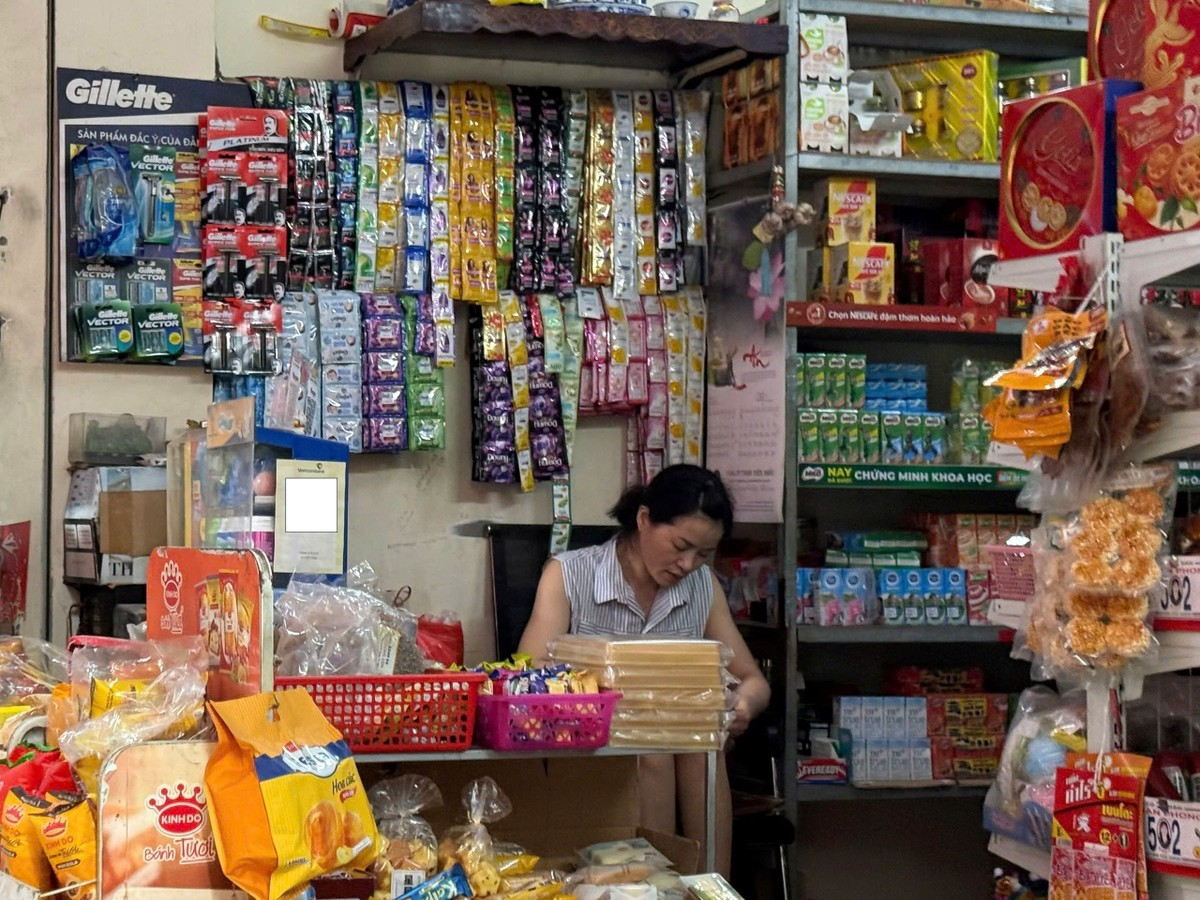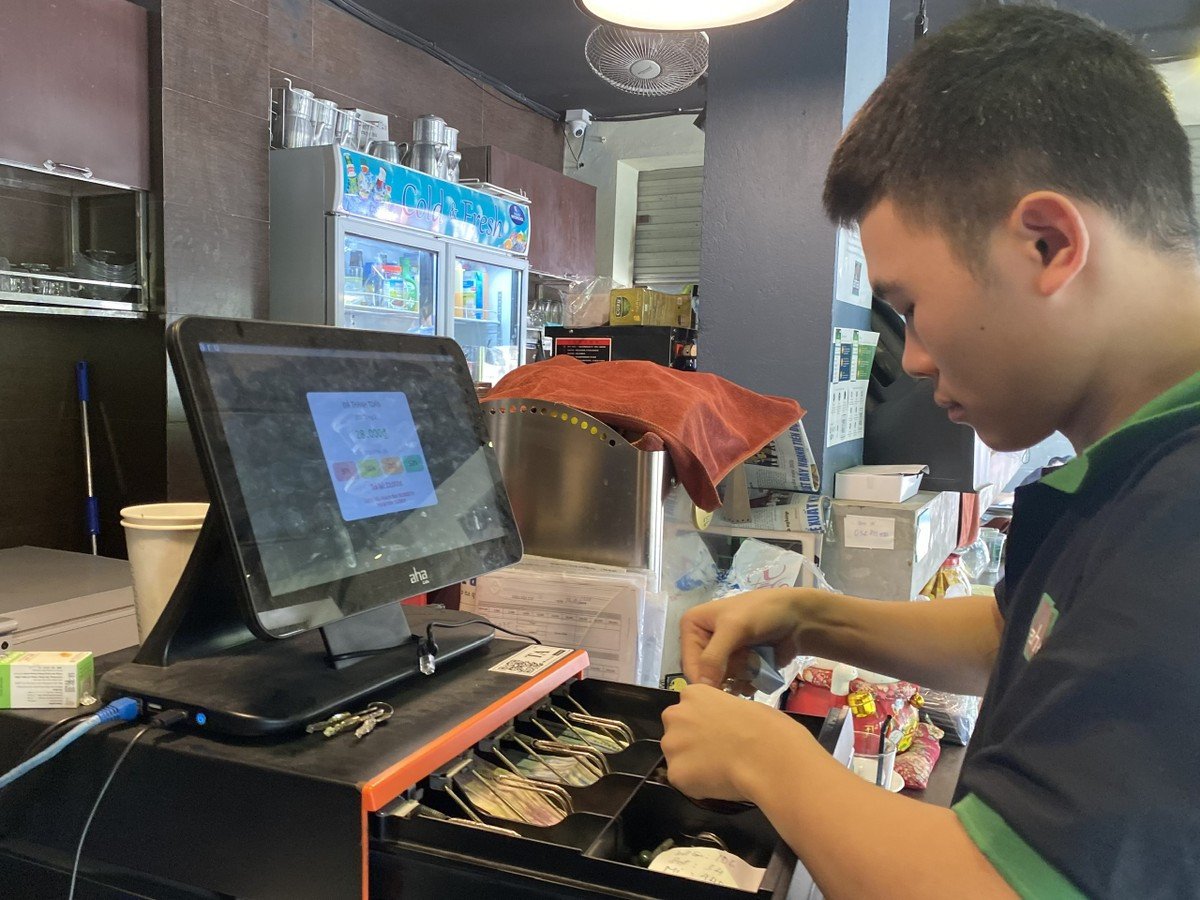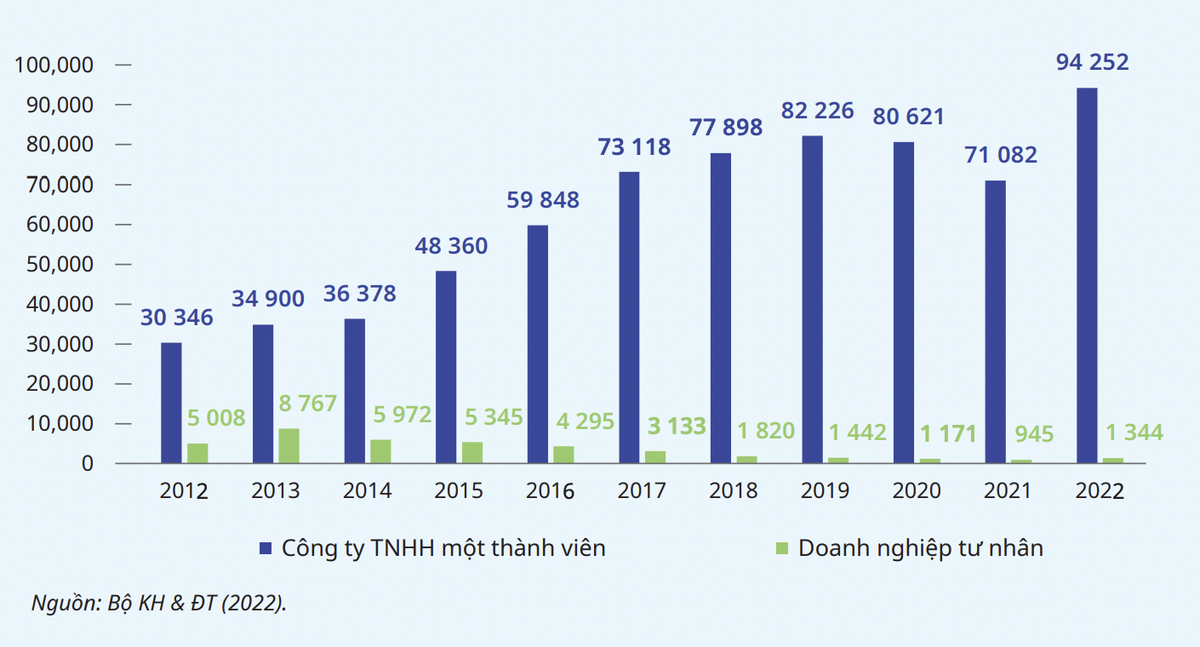Afraid of complexity, afraid of cost
After more than 10 years of selling stationery, Ms. Nguyen Thi Ha ( Hanoi ) thought many times about expanding into printing, then registered to establish a business. business for the format, but then the idea is left there.
“Many people say that becoming a business is easier to do big business, supplying companies and schools, etc. invoice, but I found it complicated, let's do it small to be safe. Books and taxes will arise a lot if we don't pay anymore. "The lump sum tax, just entering the product code and checking inventory into the sales software is already complicated," Ms. Ha worried.
Ms. Kim Hue - owner of a grocery store in Thanh Xuan district, Hanoi - also chooses the traditional way of doing business: The wife sells goods, the husband delivers. Regular customers are residents in the surrounding area. Ms. Hue is paying lump sum tax 800,000 VND/month, plus 1 million VND for business license tax for the whole year, just enough to maintain a stable store.
“You can tell by looking at the goods that are selling well or slowly. If they sell a lot, you can import more the next day. If you are missing something, you can go get it. It’s that simple. When you open a company, you have to declare each item, make reports… this is something I never thought of,” Ms. Hue shared.

Currently, the country has more than 5 million business households, estimated to contribute about 30% to the gross domestic product (GDP). and create jobs for tens of millions of workers.
A simple comparison shows how popular household businesses are among Vietnamese people. On average, for every 20 Vietnamese people, 1 person starts a business and makes a living in this form. business households, equivalent to 1 business household/20 people. Currently, the total number of enterprises nationwide is more than 940,000, equivalent to about 1 enterprise for every 106 people.
According to the report of the International Labor Organization (ILO), in the period 2018-2020, despite many support policy small and medium enterprises, but the whole country has only 1,875 enterprises established on the basis of conversion from business households. Of these, Thanh Hoa has more than 1,000 enterprises converted from business households, Ben Tre has 247 households, Thua Thien Hue has 40 households... About 80% of business households are in the field of Trade and services, although understood as "small scale", in reality show that many business households have significant revenue scale.

According to the latest figures from the Tax Department, there are currently about 37,000 business households nationwide with annual revenue of over 1 billion VND. From June 1, this group is required to use electronic invoices generated from cash registers directly connected to tax authorities, according to Decree No. 70/2025/ND-CP regulating invoices and documents.
Thus, from 2026, lump-sum tax will be officially eliminated for individuals and business households. At the same time, many incentives for small and medium-sized enterprises will be introduced according to Resolution of the National Assembly on development mechanisms and policies private economy . This move is expected to create a strong push in encouraging business households to "upgrade" to enterprises, towards the goal of having 2 million enterprises nationwide by 2030.
Cannot apply the large enterprise model to noodle sellers
Talk to PV Tien Phong , economic expert Le Duy Binh - Director of Economica Vietnam - commented: "The tax reduction policy for 3 years is a positive step, but not convincing enough for business households to convert to enterprises. Because the benefits from tax exemption still in the future tense, while compliance costs must be paid regularly after the establishment of the business”.
According to Mr. Binh, the household business sector is very diverse, from large scale to small households, trading just enough to make a living. To encourage household businesses to convert into enterprises, there needs to be a separate legal framework, more suitable to the current characteristics of small businesses; it is impossible to apply the model of a large, systematic enterprise with an accounting apparatus, management system, director - board of control - chief accountant - complex financial reports to noodle sellers or startups.
"Modify Business Law or build “A separate law for individual enterprises. The name alone is important. Instead of private enterprise, call it individual enterprise to be closer. A suitable name will lead to a suitable system of regulations,” Mr. Binh suggested.

Sole proprietorship is also a popular model in many countries. Citing data from the Accounting and Corporate Regulatory Authority of Singapore (ACRA), the Director of Economica Vietnam said that 50-60% of newly registered businesses each year in Singapore are sole proprietorships - sole proprietorships. In particular, countries belonging to the Organization for Economic Cooperation and Development (OECD) have a very large number of sole proprietorships (OECD has 38 members and most of them are high-income countries - PV). Meanwhile, in Vietnam, the rate of newly registered private businesses is less than 0.1% each year, with limited liability companies accounting for the majority.
Instead of "forcing" businesses to grow immediately by changing their models, economic expert Le Duy Binh believes that the first thing to do is to create a business form with status. Clear legal framework, low compliance costs, simplicity and convenience – the right stepping stone for early stage startups. The model must be flexible enough to encourage entrepreneurship, but clear enough to gradually bring them into the formal sector of the economy. Many countries have taken this step.
“The transition from business household to enterprise will not need to be forced but will become an inevitable need according to the laws of the market. When the scale of operations increases, when it is necessary to expand investment, call for capital or sign large contracts, they themselves will see that "they need to grow", they need to become enterprises", Mr. Binh said and emphasized the simplification of registration procedures, allowing registration at the commune level instead of requiring registration up to the province or city as it is now.
Not only business registration procedures, with the elimination of lump-sum tax from 2026, Ms. Nguyen Thi Cuc - President of the Vietnam Tax Consulting Association - said that it is necessary to create a positive and proactive mentality, helping business households to easily access and convert. Accordingly, the State can set aside a transition period of 6 months to 1 year for business households to get used to the new method and during that time the State should provide free software and support tools.
Source: https://baoquangninh.vn/su-that-dang-sau-viec-hon-5-trieu-ho-kinh-doanh-khong-chiu-lon-3359508.html




































































































Comment (0)